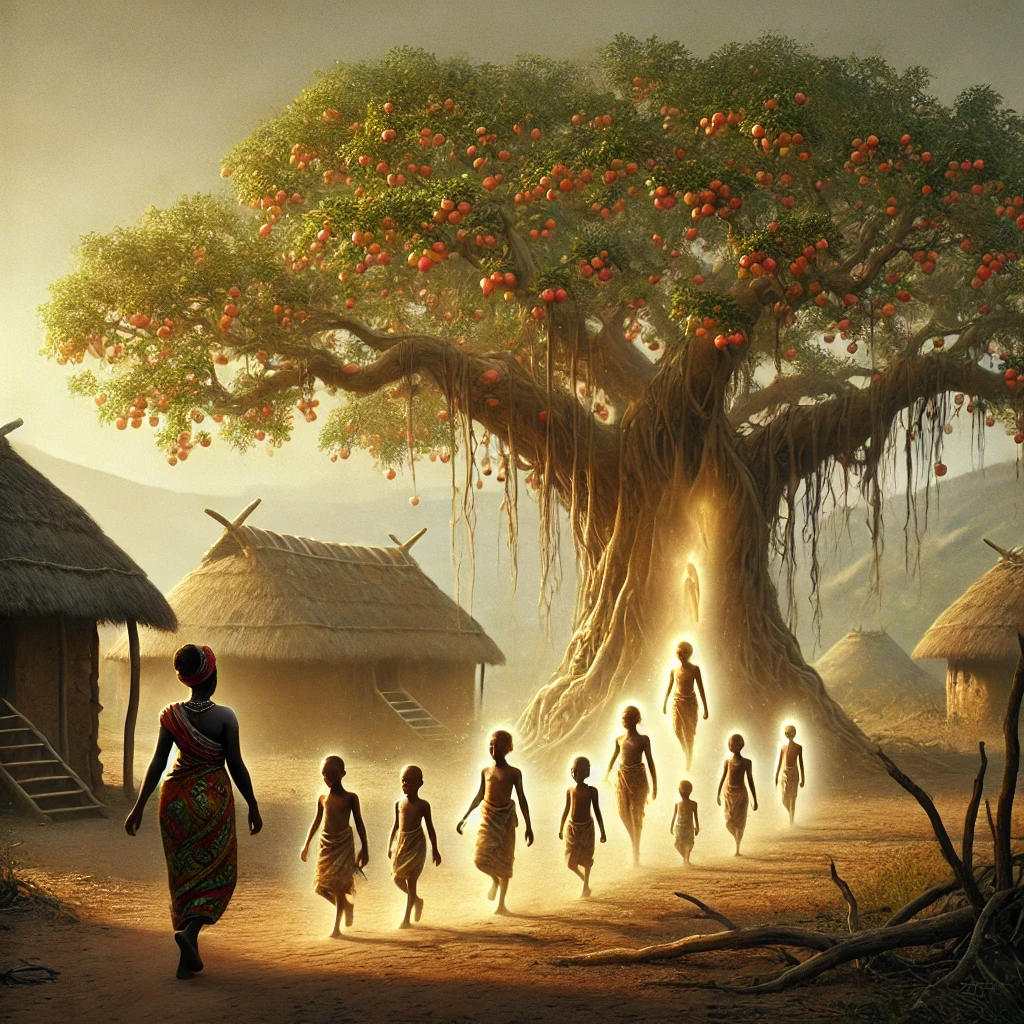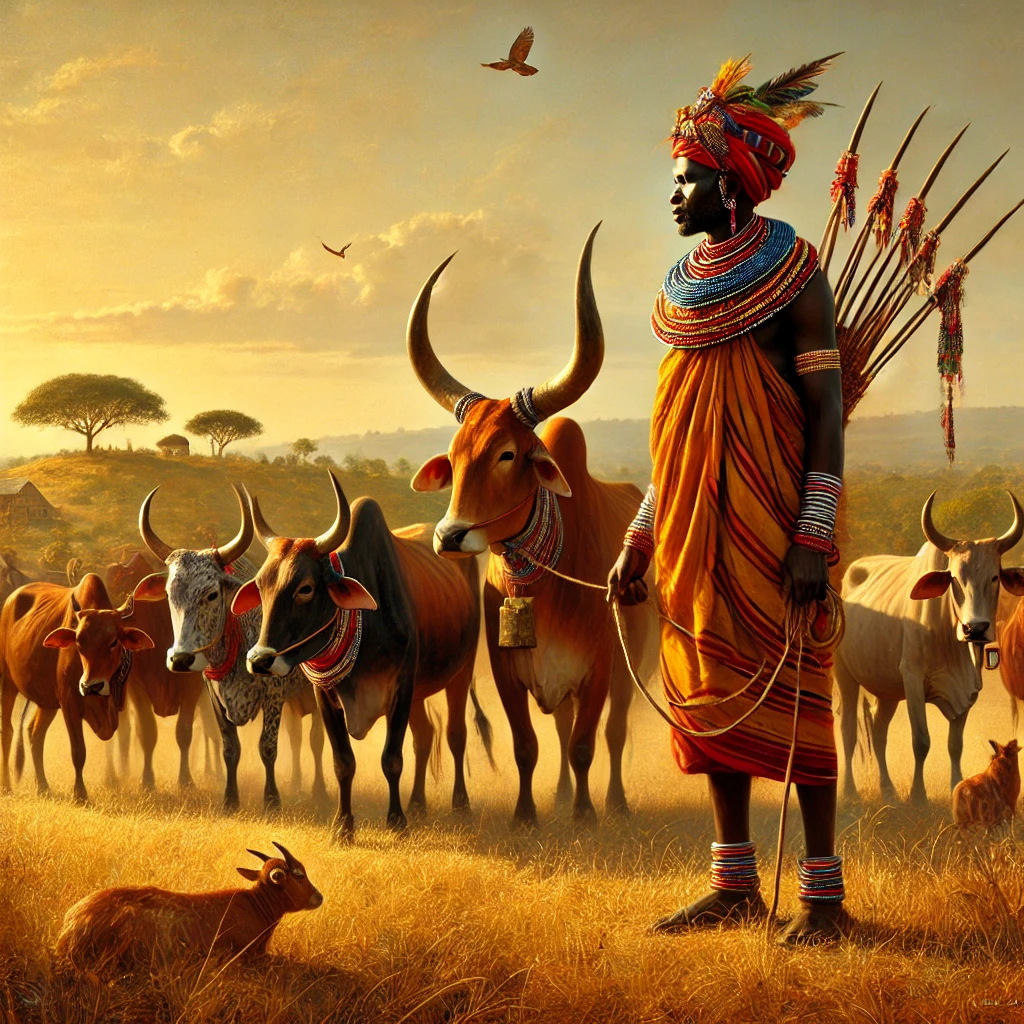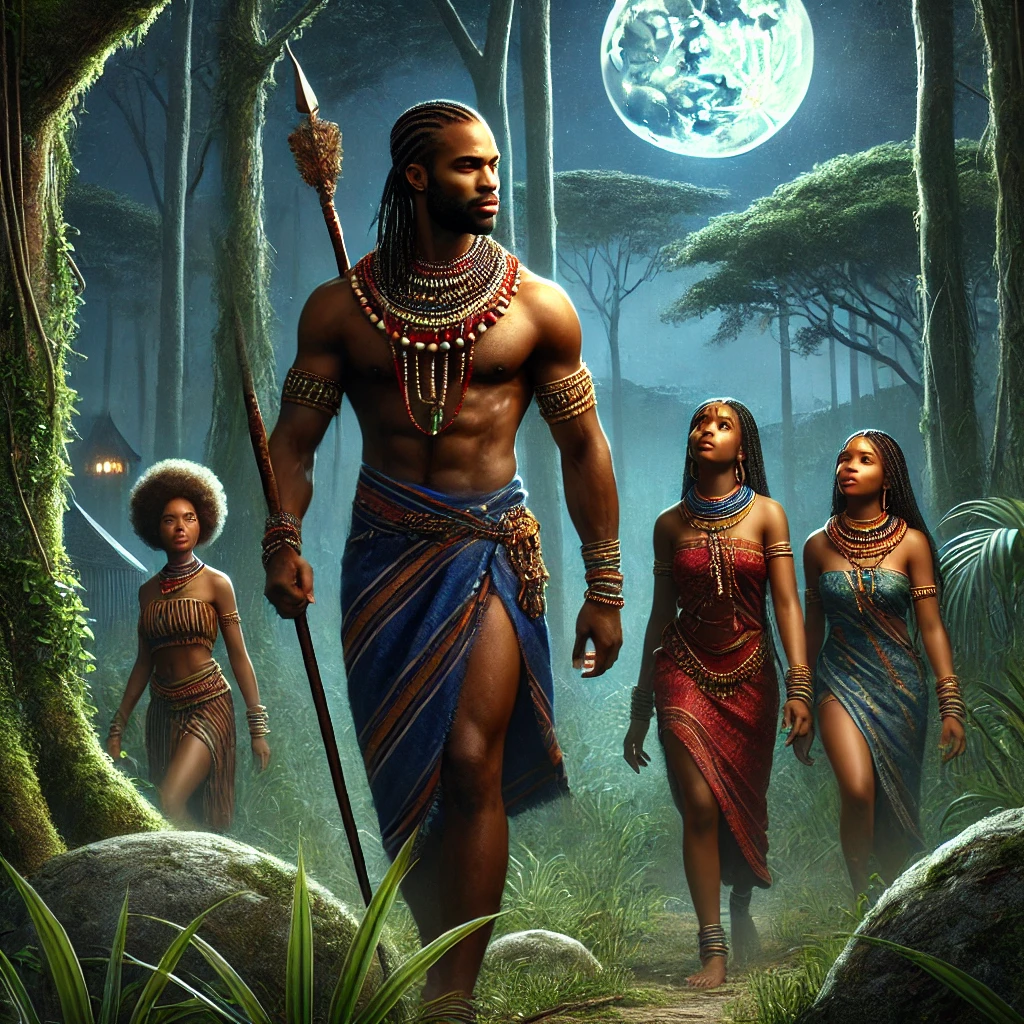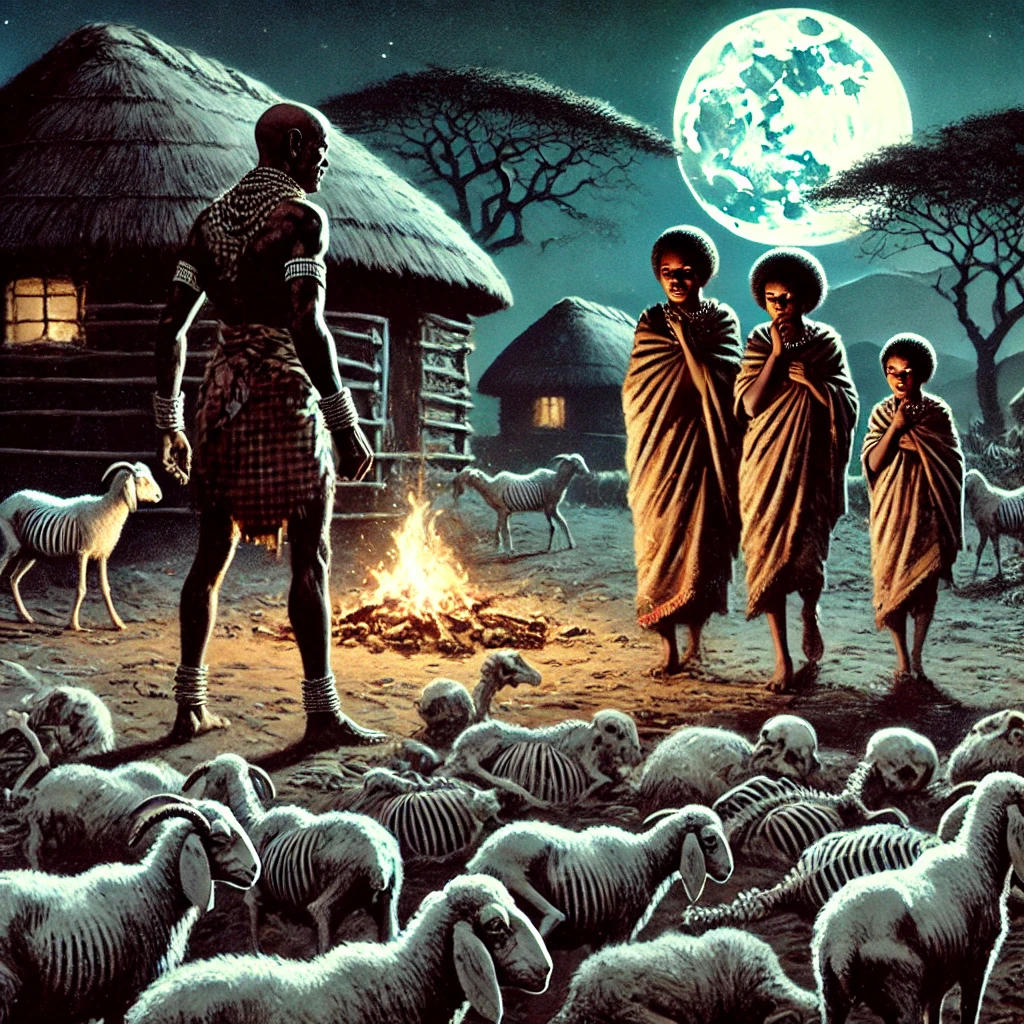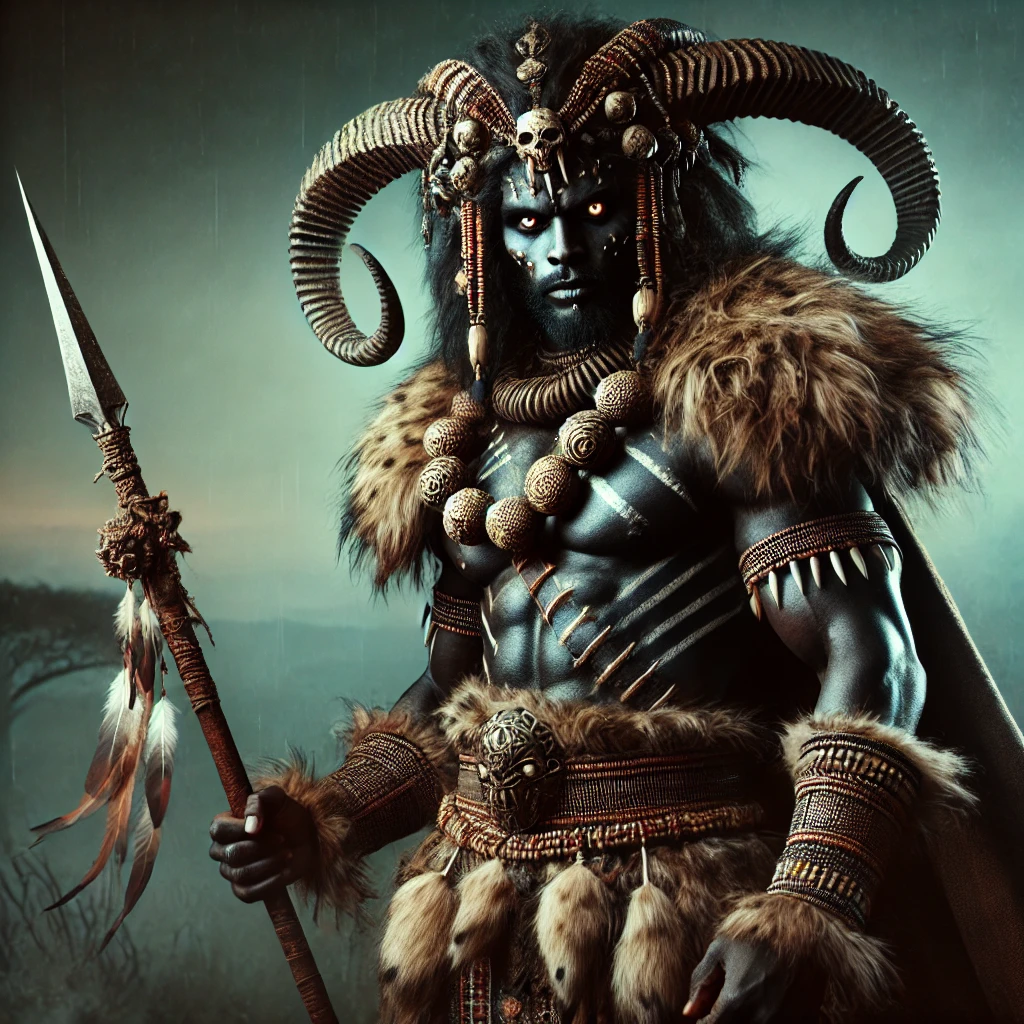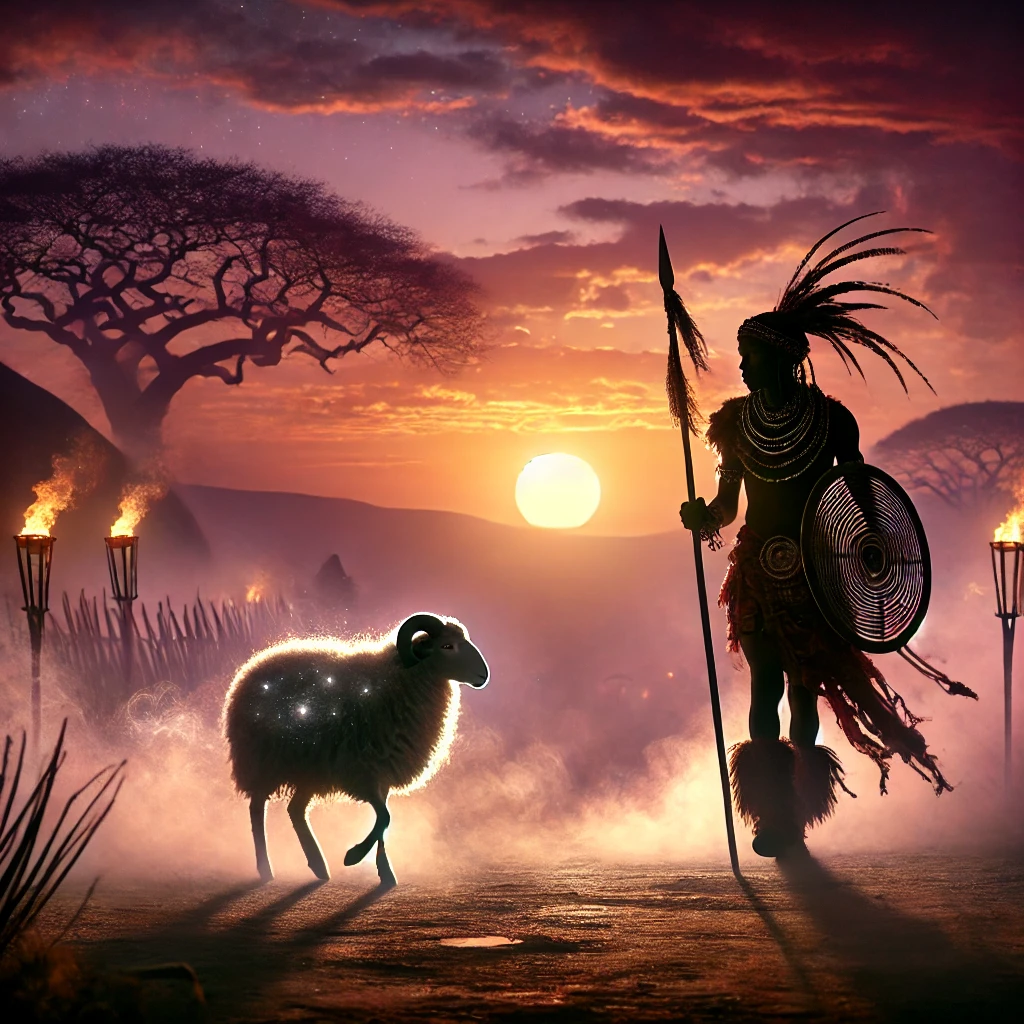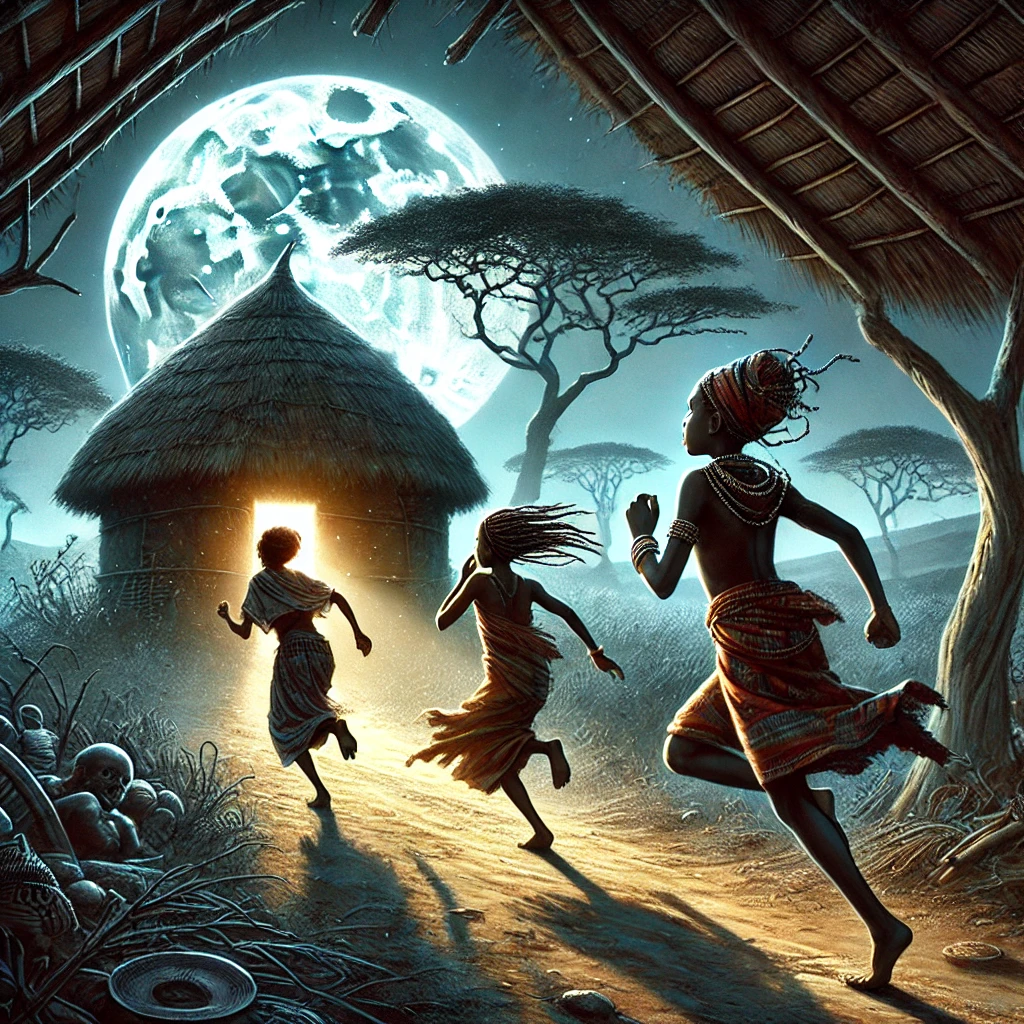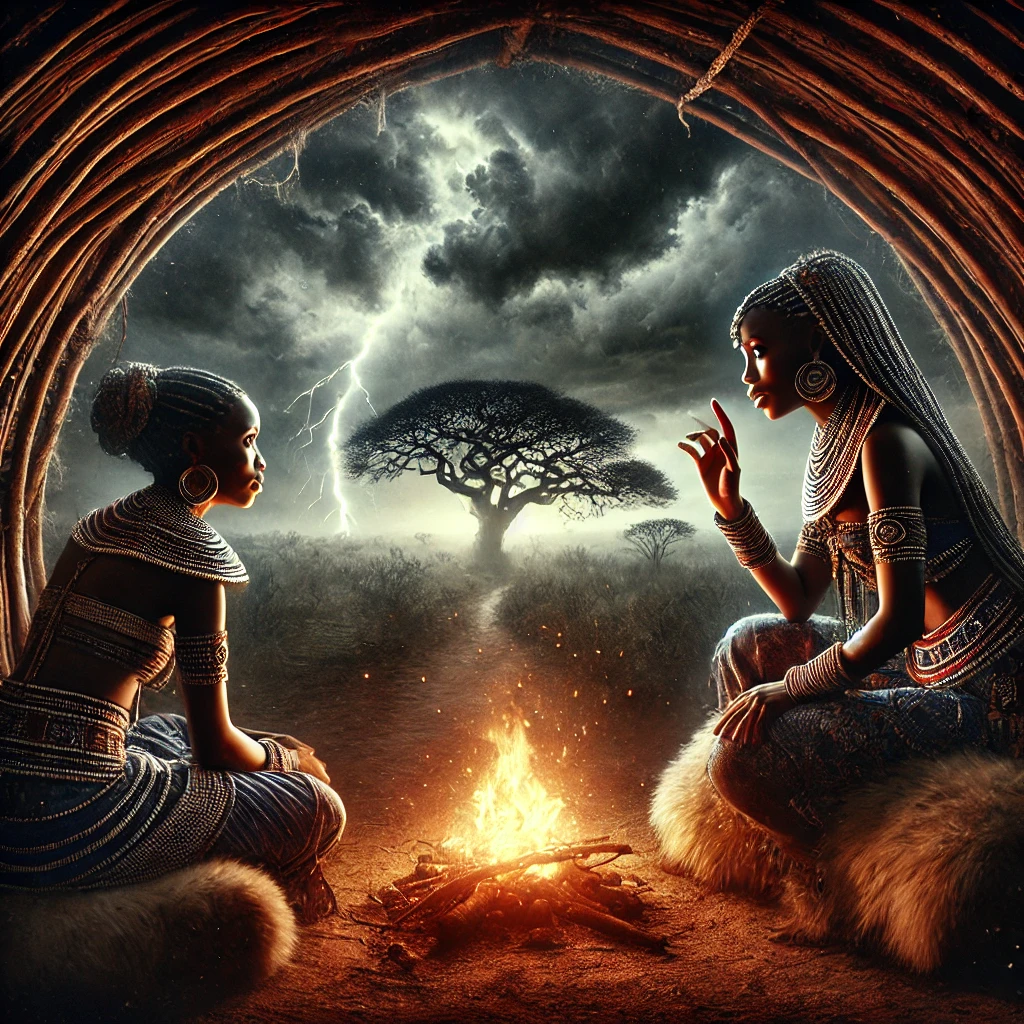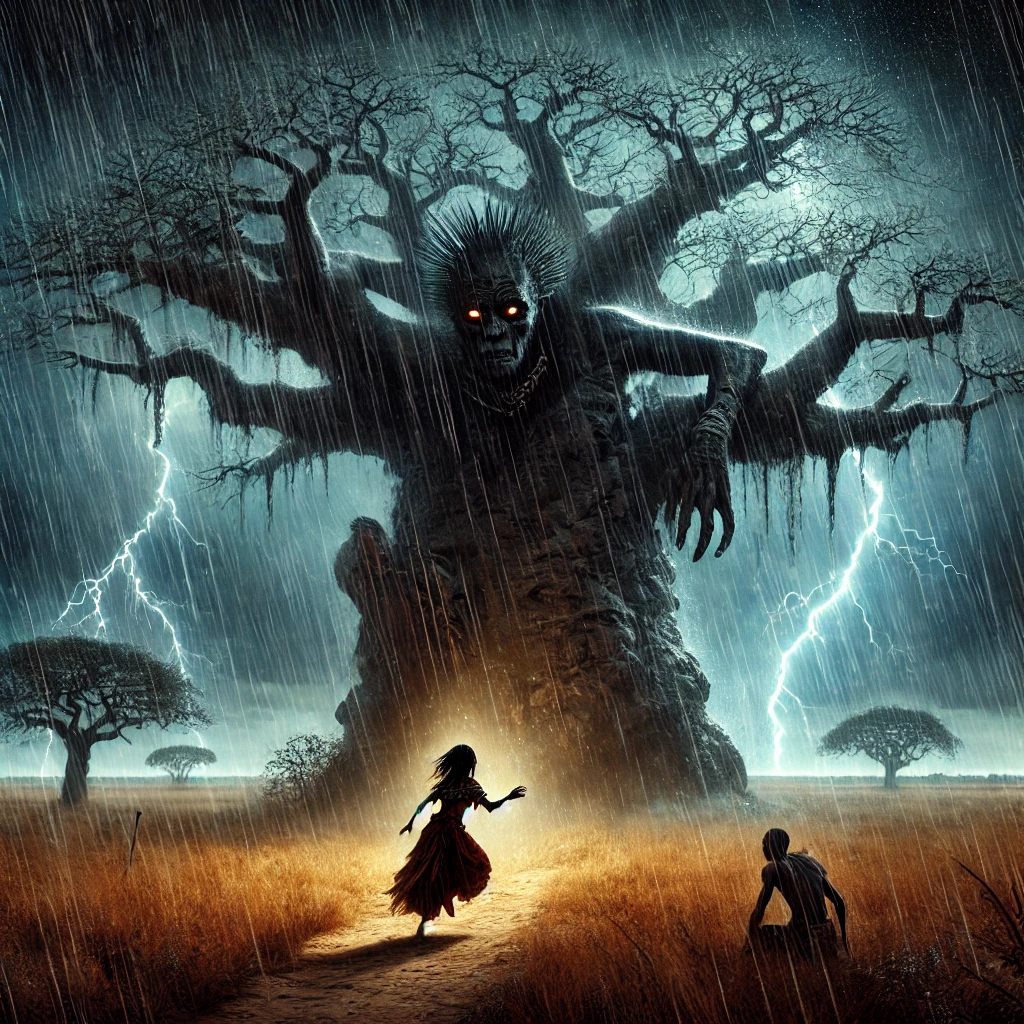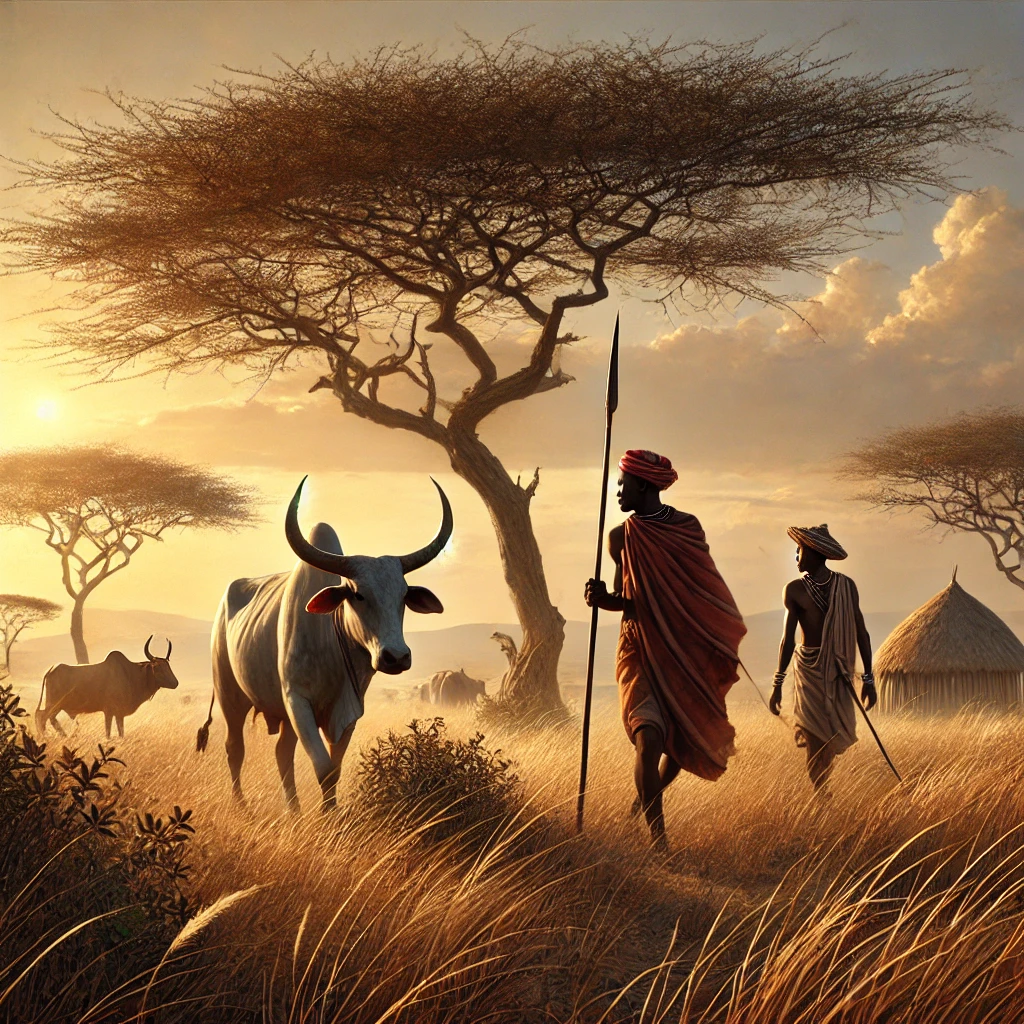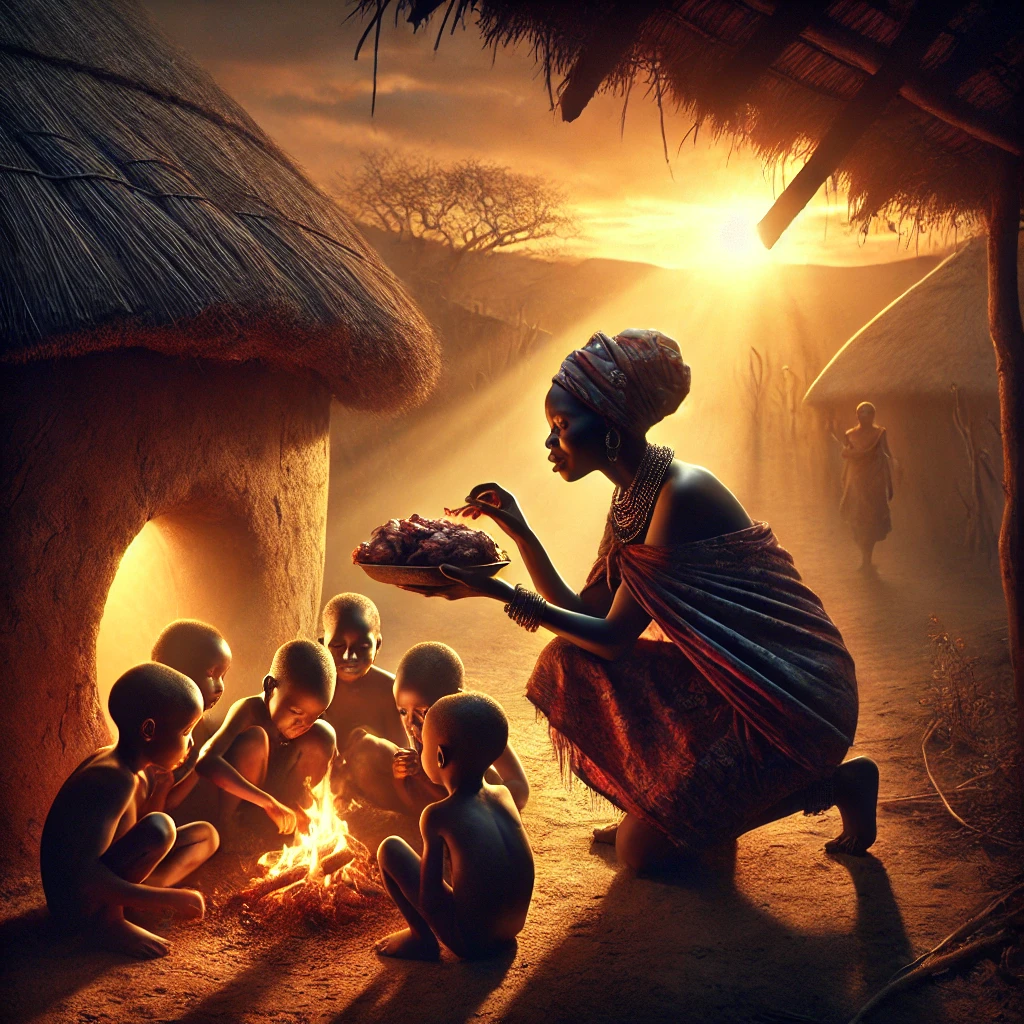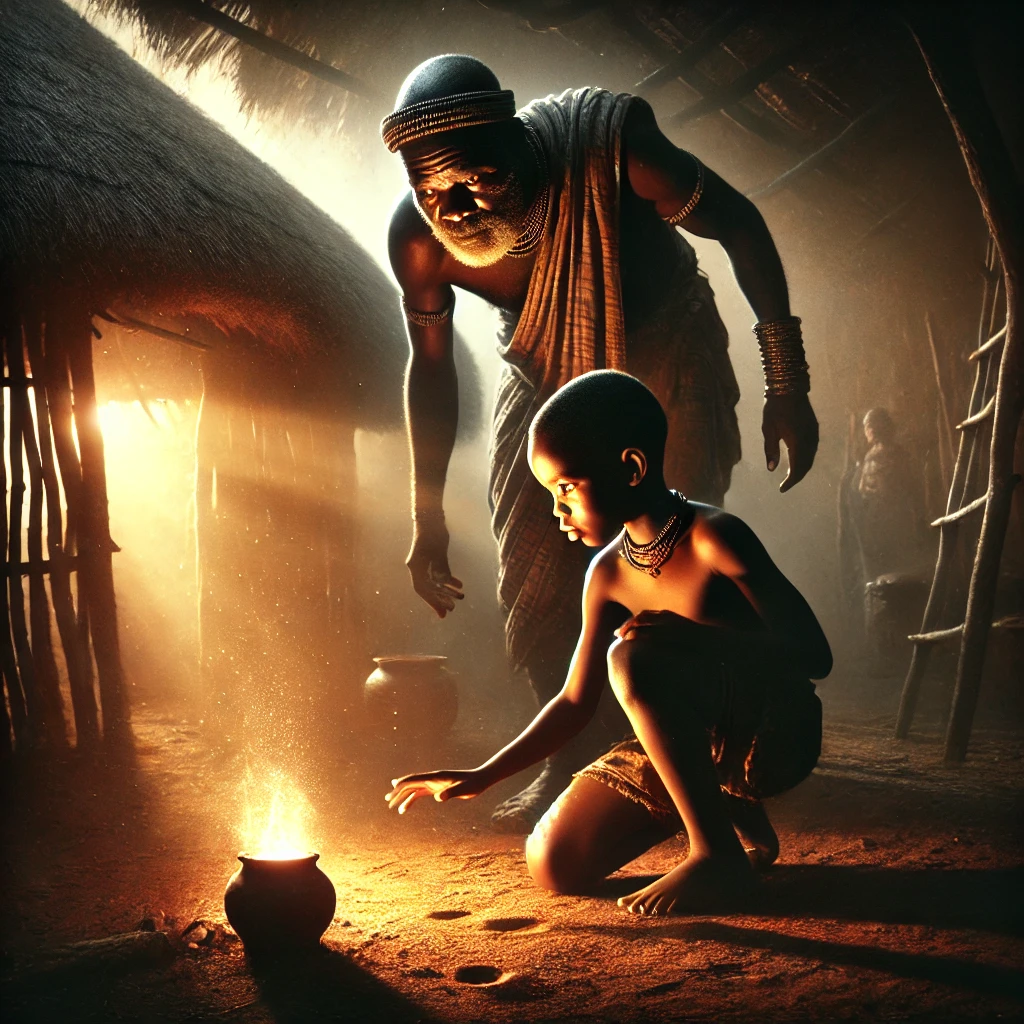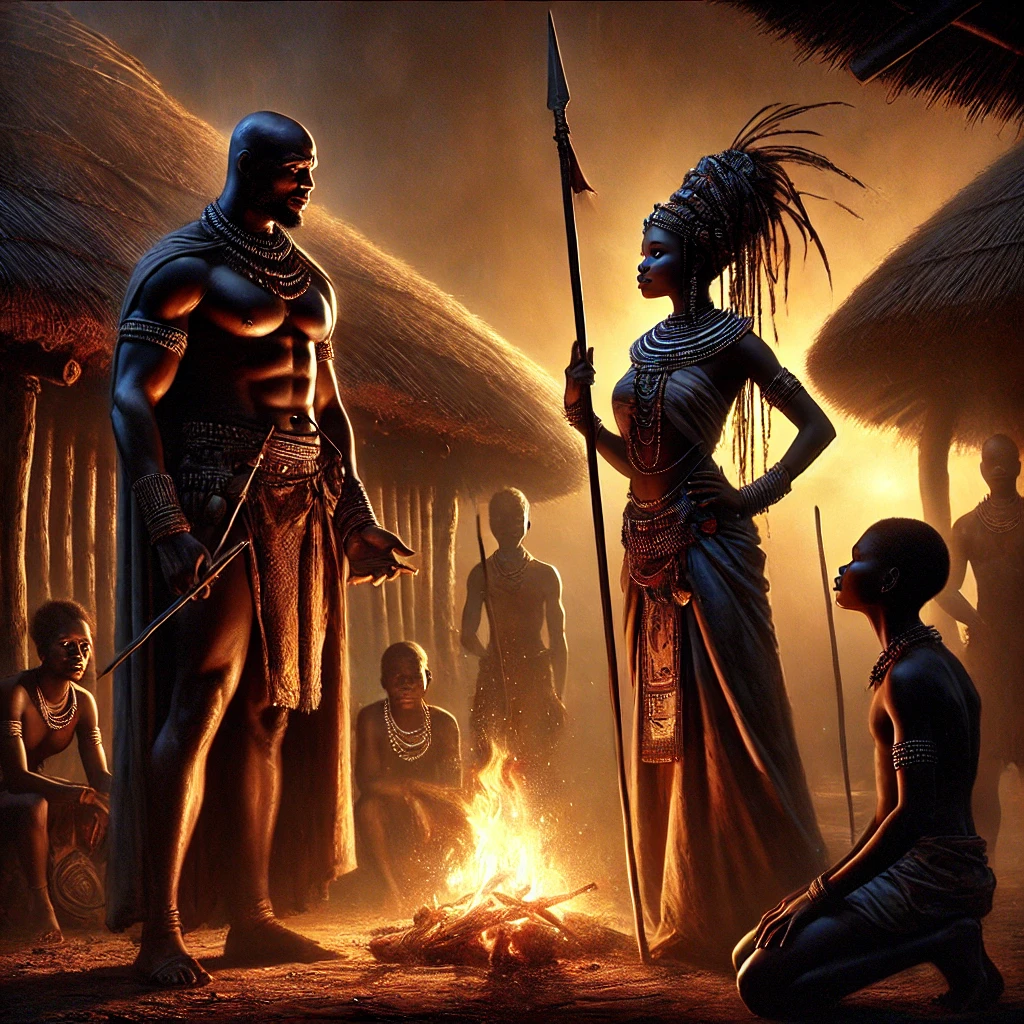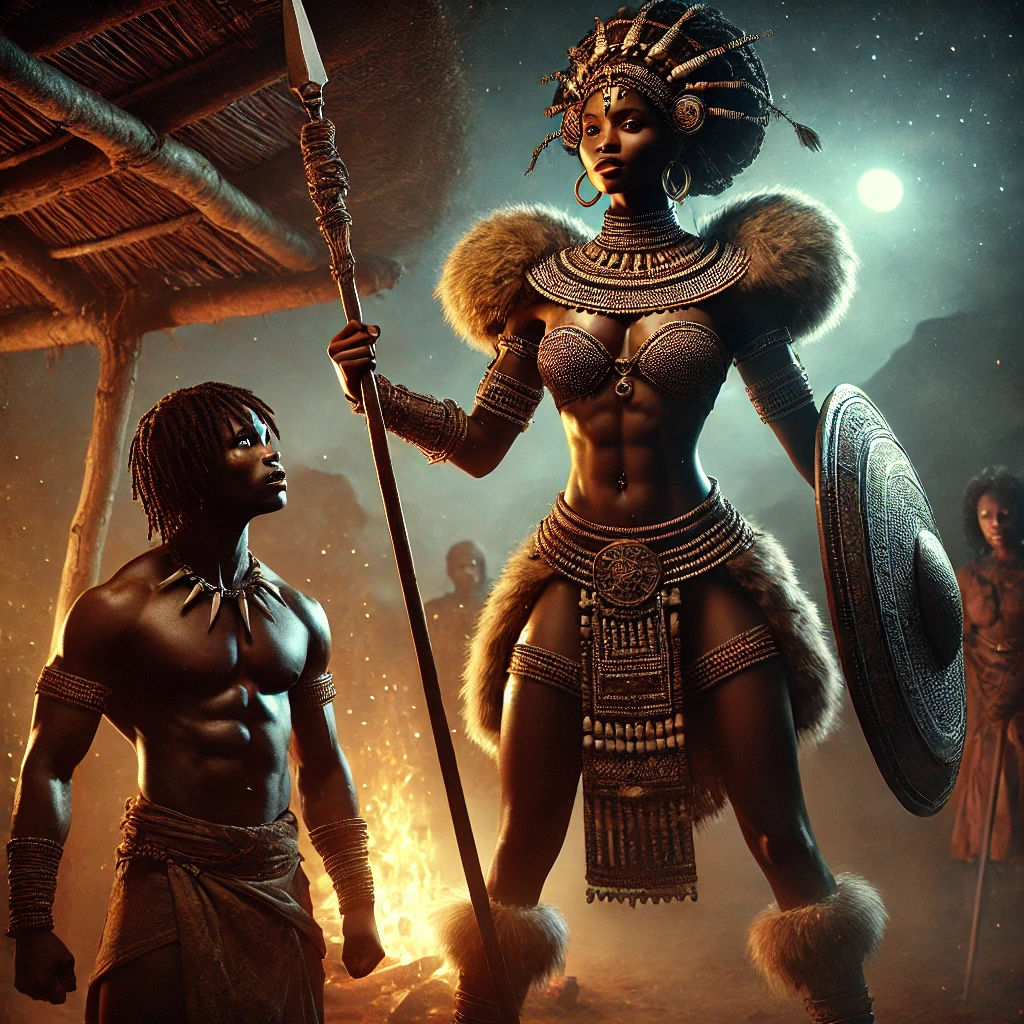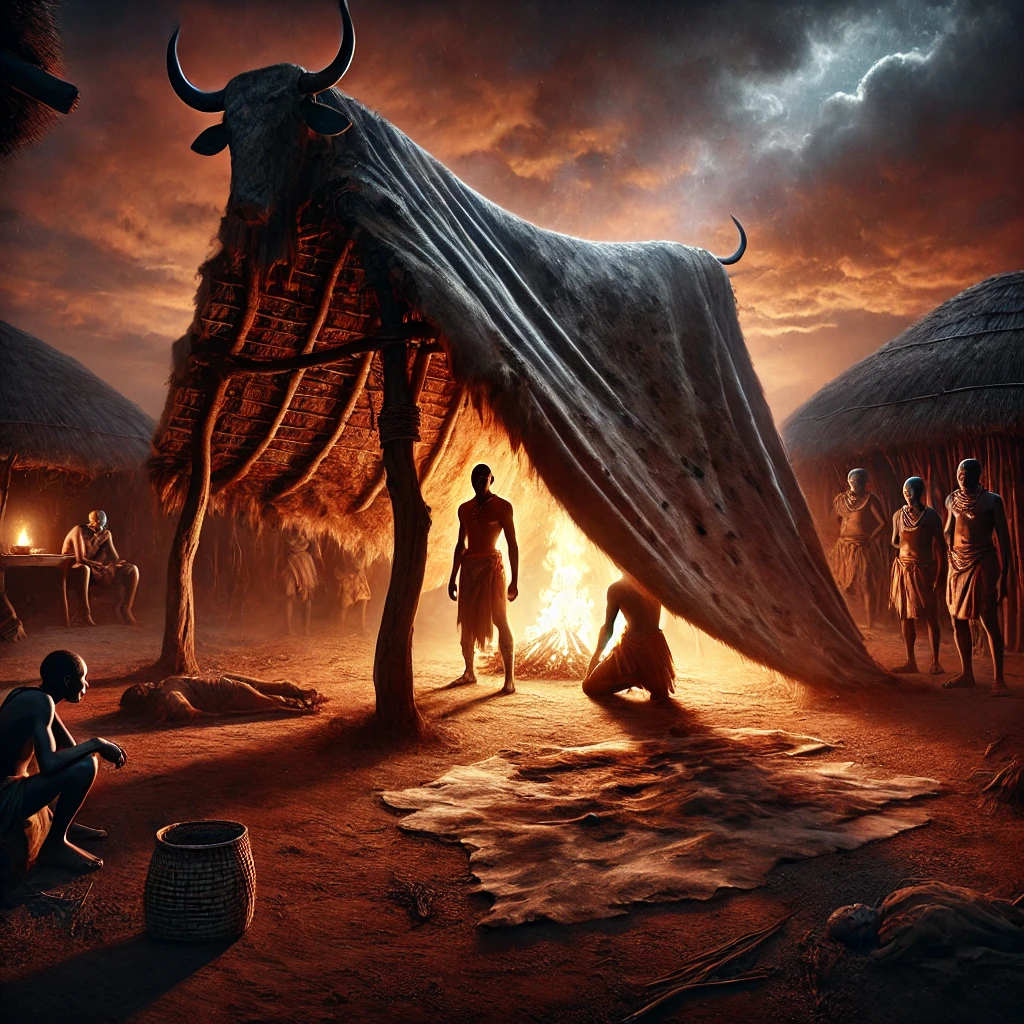THIS IS WHAT A WOMAN DID.
She was then living in the bush, never showing herself to anyone. She had living with her just one daughter, who used to pass the day in the fork of a tree making baskets.

One day there appeared a man just when the mother had gone to kill game. He found the girl making baskets as usual. “Here now!” he said. “There are people here in the bush! And that girl, what a beauty! Yet they leave her alone. If the king were to marry her, would not all the other queens leave the place?”

Going back to the town, he went straight to the king’s house and said, “Sire, I have discovered a woman of such beauty that, if you call her to this palace, all the queens you have will make haste to go away.”

The following morning people were called together and set to grind their axes. Then they started for the bush. As they came in view of the place, they found the mother had once more gone to hunt.
Before going, she had cooked porridge for her daughter and hung meat for her. Then only had she started on her expedition.
The people said, “Let us cut down the tree on which the girl is.”
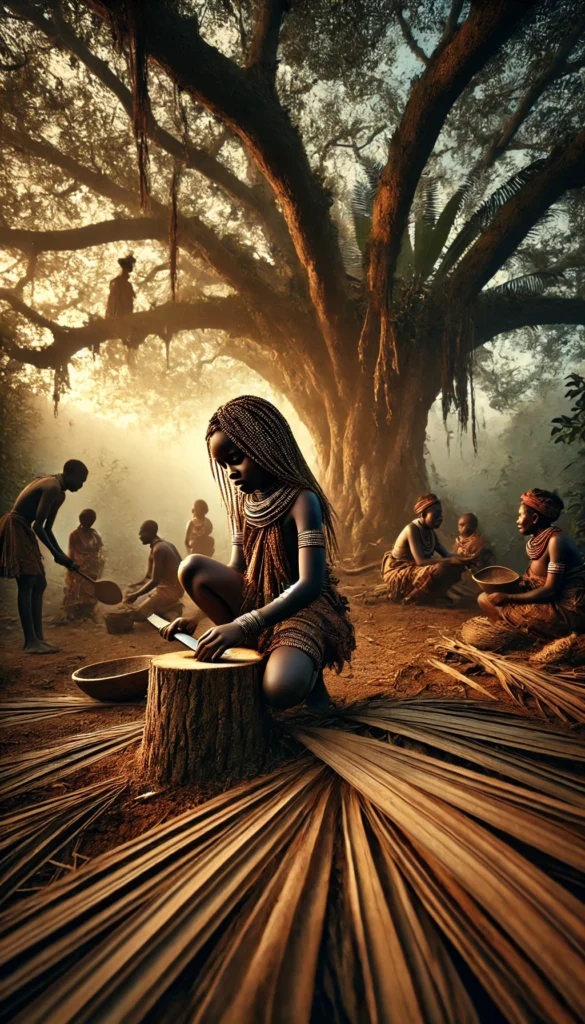
So they put axes to it. The girl at once started this song:
“Mother, come back!
Mother, here is a man cutting our shade tree.
Mother come back!
Mother, here is a man cutting our shade tree.
Cut! Here is the tree falling in which I eat.
Here it is falling.”
The mother dropped there as if from the sky:
Many as you are, I shall stitch you
with the big needle.
Stitch! Stitch!”
They at once fell to the ground…. The woman left just one to go back and report.
“Go,” she said, “and tell the news.” He went….
When he came to the town the people asked, “What has happened?”
“There,” he said, “where we have been! Things are rather bad! “
Likewise, when he stood before the king, the king asked, “What has happened?”
“Sire,” he said, “we are all undone. I alone have come back.”
“Bakoo! You are all dead! If that is so, tomorrow go to the kraal over there and bring more people. Tomorrow morning let them go and bring me the woman.”
They slept their fill.

The next morning early, the men ground their axes and went to the place.
They, too, found the mother gone, while the porridge was ready there, and the meat was hanging on the tree….

“Bring the axes.” Forthwith they went at the shade tree. But the song had already started:
“Mother, come back!
Mother, here is a man cutting our shade tree.
Mother, come back!
Mother, here is a man cutting our shade tree.
Cut! Here is the tree falling in which I eat.
Here it is falling.”
The mother dropped down among them, singing in her turn:
“many as you are, I shall stitch you
with the big needle.
Stitch! Stitch!”
They were dead. The woman and her daughter picked up the axes….
“Olo!” said the king when he was told. “Today let all those that are pregnant give birth to their children.”
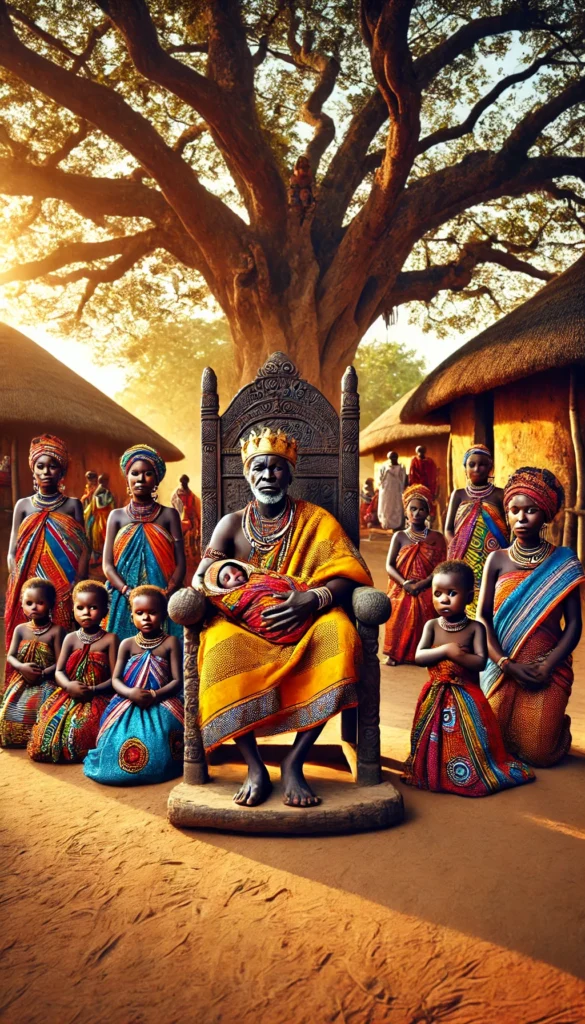
So one woman after another straightway brought forth her child. Soon there was a whole row of them.
Then the whole band departed, making a confused noise.
When the girl saw that, she said, “There is no joke about it now. There comes a red army with the umbilical cords still hanging on.”
They found her at her own place in the fork of the tree.
“Let us give them some porridge on their heads, but the children did not eat it.
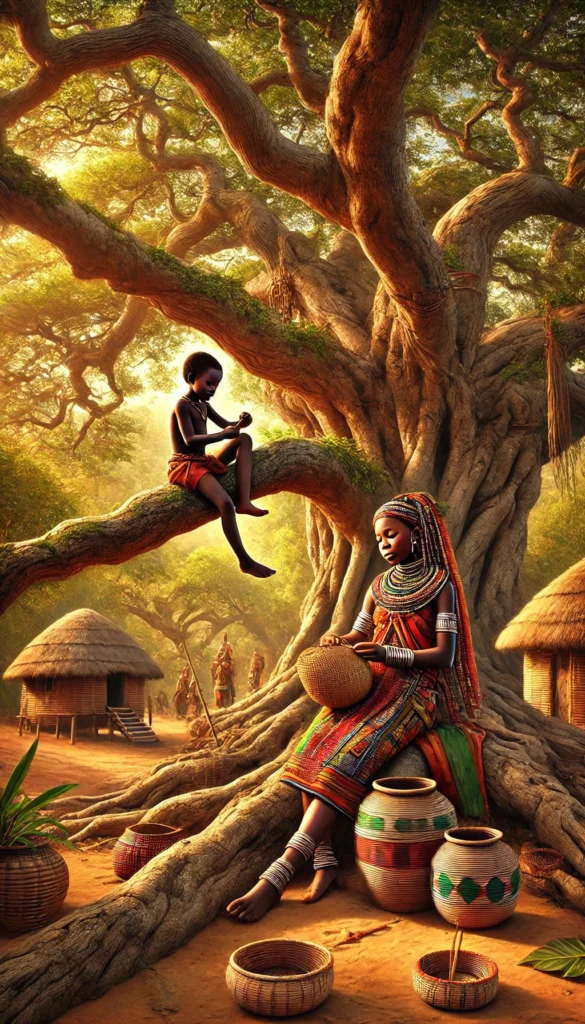
The last-born then climbed up the shade tree, picked up the baskets which the girl was stitching, and said, “Now bring me an axe.”
The girl shouted once more:
“Mother, come back!
Mother, here is man cutting our shade tree.
Mother, come back!
Mother, here is a man cutting our shade tree.
Cut! Here is the tree falling in which I eat.
Here it is falling.”
The Mother dropped down among the crowd:
“Many as you are, I shall stitch you with the big needle.
Stitch! Stitch!”

But thee was the troop already dragging the girl. They had tied her with their umbilical cords, yes, with their umbilical cords. The mother went on with her incantation:
“many as you are, I shall stitch you
with the big needle.
Stitch! Stitch!”
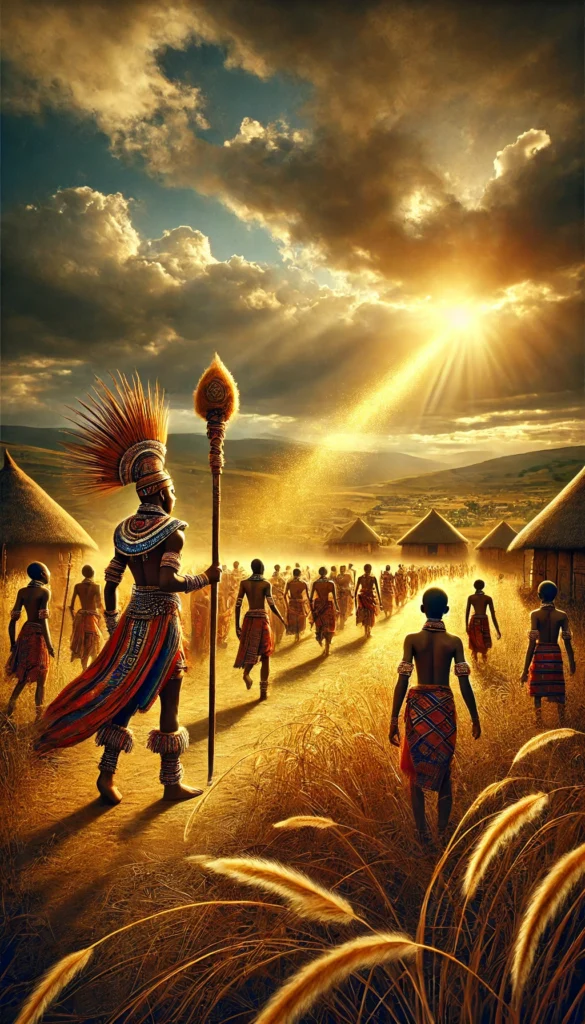
In vain! The troop was already in the fields and the ngururu went up as far as God’s abode, and soon the children were in the town.
As they reached it, the mother said, “since you have carried away my child, I must tell you something. She is not to pound in the mortar, nor to go to fetch water at night. If you send her to do one of these things, mind you! I shall know where to find you.”
Then the mother went back to her abode in the bush.
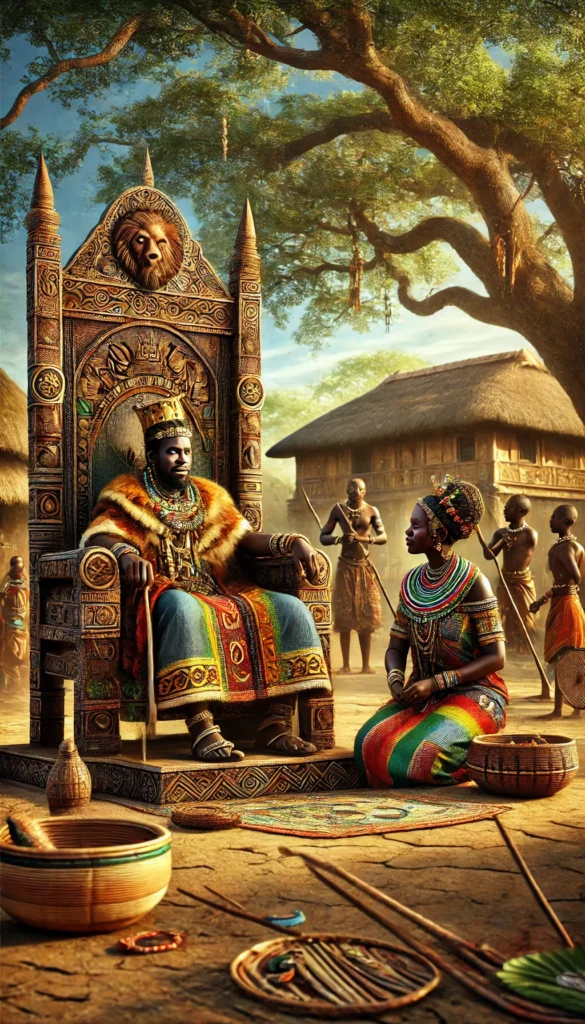
The following day the king said, “Let us go hunting.” And to his mother he said, “my wife must not pound mortar. All that she can do is to stitch baskets.”
While the husband was away there in the open flat, the other wives as well as the mother-in-law said, “Why should not she also pound in the mortar?”
When the girl was told to pound in the mortar, she said, “No.”
A basket of corn was brought to her.
The mother-in-law herself took away the meal from the mortar, and then the other women in their turn brought corn and put it all there.
So the girl pounded, singing at the same time:
“Pound! At home I do not pound,
Here I pound to celebrate my wedding.
Yepu! Yepu!
If I pound, I go to God’s.”
She began to sink into the ground but she went on singing:
“Pound! At home I do not pound,
Here I pound to celebrate my wedding.
Yepu! Yepu!
If I pound, I go to God’s”

Soon she was down as far as her neck. Now the mortar went on by itself pounding the grain on the ground, pounding on the ground. Finally the girl disappeared altogether.
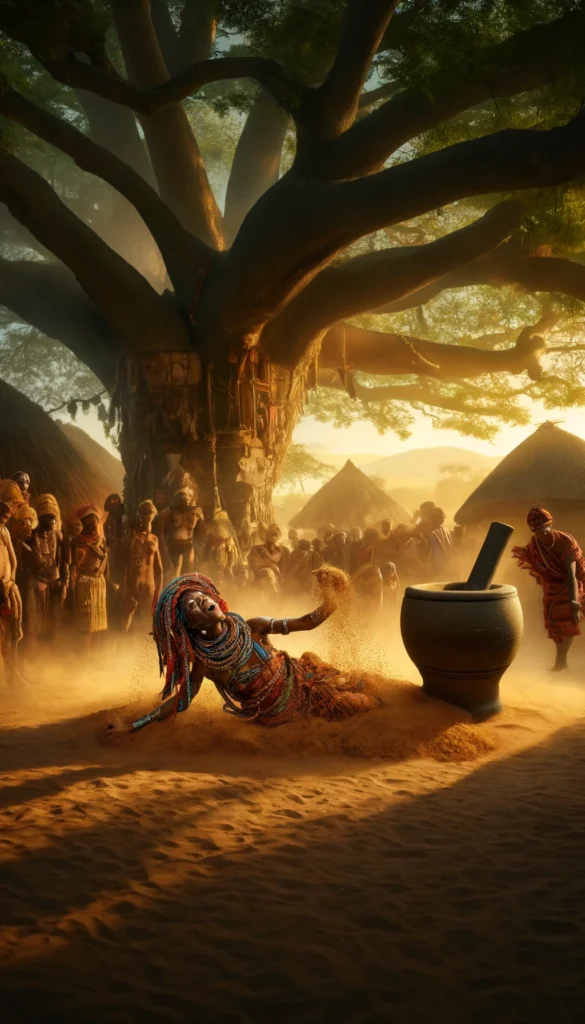
When nothing more was seen of her, the mortar still pounded as before on the ground. The women then said, “Now what shall we do?”
They went and called a crane, and said, “Go and break the news to her mother. But, first, let us know, what will you say?”
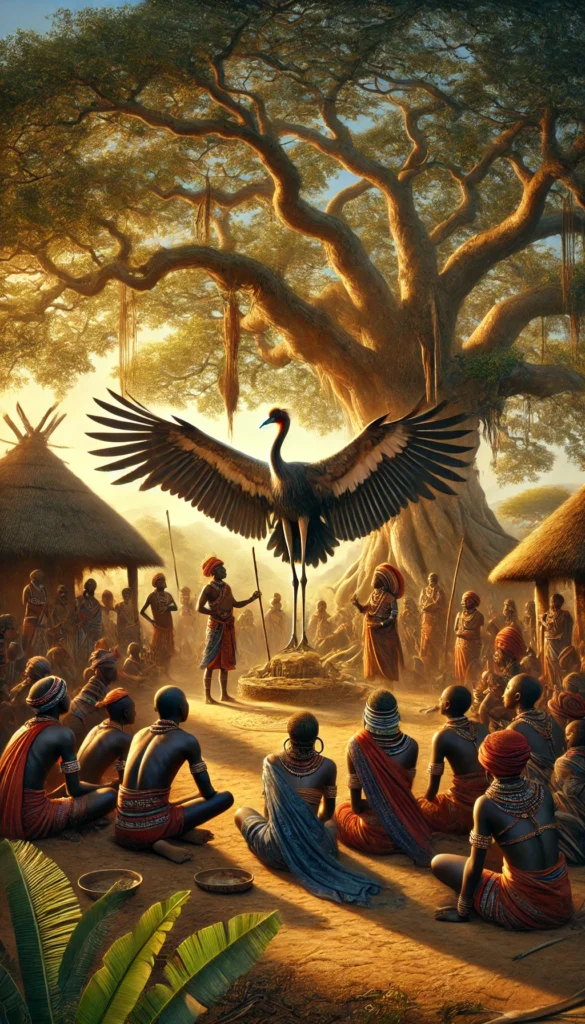
The crane said, “Wawani! Wawani!”
They said, “that has no meaning, go back. Let us send for the crow.”
The crow was called, “Now what will you say?”
The crow said, “Kwa! Kwa! Kwa!”
“The crow does not know how to call. Go, quail. How will you do?”
The quail said, “Kwalulu! Kwalulu!”
“The quail does not know how to do it either. Let us call the doves.”
They said, “Let us hear, doves, what will you call to her mother?”
They they heard:
“Kuku! Ku!
She-who-nurses-the-sun is gone,
You who dig,
She-who-nurses-the-sun.”
They said, “Go, you know how to do it , you.”
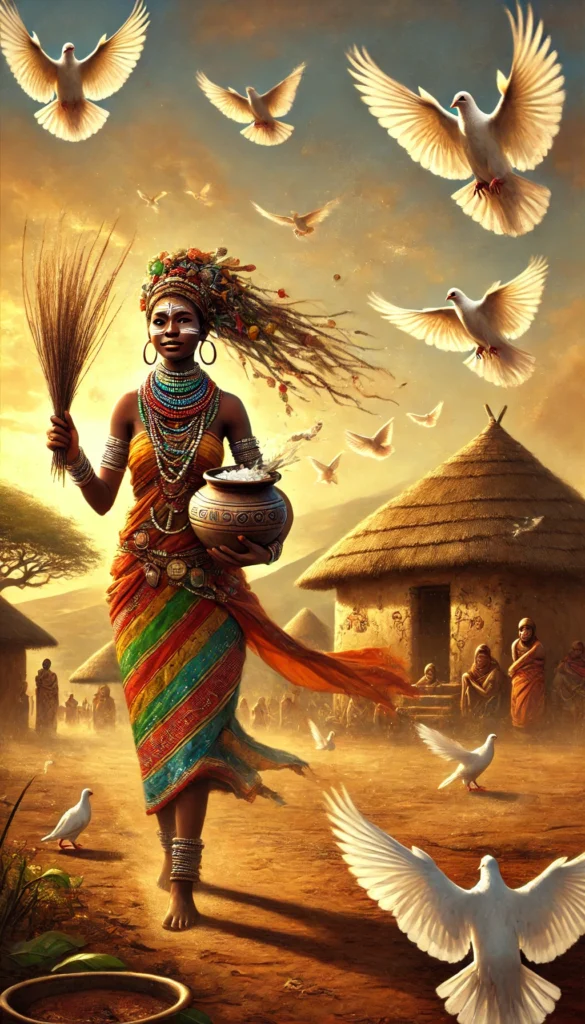
The mother went when she heard the doves. There she was going toward the town. She carried medicines on a potsherd, also tails of animals with which she beat the air.
While she was on the road, she met a zebra:
“Zebra, what are you doing?
–Ullimidden.
The wife of my father is dead.
–Ullimidden.
O Mother! You shall die.
–Ullimidden.”

The zebra died. The woman went on, went on, went on, and then found people digging:
“You who dig, what are you doing?
–Ullimidden.
The wife of my father is dead.
O mother! You shall die.
–Ullimidden.”
When she reached the town there:
“Let me gather, let me gather
The herd of my mother.
Nakomse, get up.
Let me gather the herd.
“Let me gather, let me gather
The herd of my father.
Nakomse, get up.
Let me gather the herd.”
She then heard the mortar still sounding right above the child.
So she sprayed one medicine, then another.

There was the child already pounding from under the ground. Little by little the head came out. Then the neck, and the song was heard again:
“Pound! At home I do not pound,
Here I pound to celebrate my wedding.
Yepu! Yepu!
If I pound, I go to God’s”
The child was now in full view. Finally she stepped outside. The end.
[ BENA MUKUNI ]





